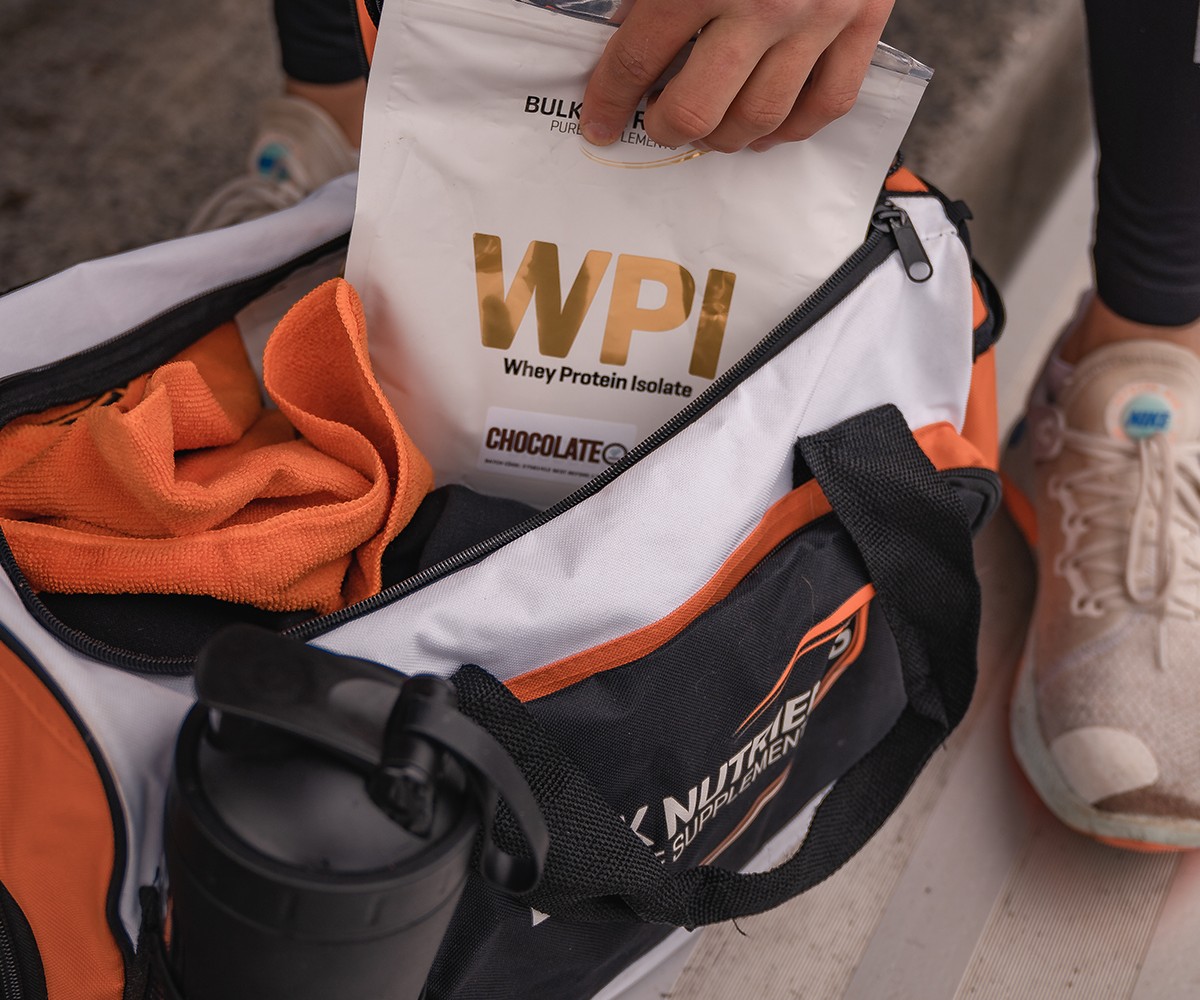Everything You've Wanted to Know About Our Protein! (FAQs)

Bulk Nutrients Protein Frequently Asked Questions
Which is the best value for money protein?
When it comes to value for money, Whey Protein Concetrate (WPC) can't be beaten. It has one of the best amino acid spreads available, is absorbed quickly - but not so fast it limits its effectiveness. It tastes good, mixes well, and comes in a great range of flavours.

What is the best protein for night time?
A great protein for use at night is Micellar Casein, as it is a sustained release protein that results in a very slow breakdown. It's the perfect protein for people to have before bed so it keeps them full overnight while they're sleeping, or for those who don't want to frequently have protein shakes.
Here at Bulk, we sell Micellar Casein separately, and it's a key ingredient in our Thermowhey Weight Loss Protein, Protein Matrix+ and Total Meal Replacement products as well.
Micellar Casein is easily mixed in to create delicious dessert recipes - some of the favourites on our Bulk Nutrients Blog include Micellar Casein Mousse and Choc Peanut Butter Truffles.
What is the best all round protein?
Our Whey Protein Isolate (WPI) is our most popular protein - and for good reason! WPI is a great all round protein, being extremely nutritionally pure, tasting fantastic and mixing well. It's the perfect protein to use to help repair muscles after training, or at any time of the day.
The second choice for an all-in-one protein is WPC. Better value for money for those on a tighter budget and only marginally less effective.
How much protein should you have per meal? A lot of people suggest protein should be limited to around 40 grams per meal - see what research has to say.
What is the best vegan protein?
At Bulk Nutrients, we might be biased but we believe our Earth Protein is the best vegan protein for muscle building and recovery. Earth Protein is our flagship plant based protein, combining pea protein, rice protein, and fava bean protein, creating a fully balanced spectrum of 18 amino acids in levels that are ideal for muscle growth, recovery and repair.
Taking a plant based approach to your nutrition? Have a look at the five best plant-based supplements for muscle growth, and why switching from dairy to plant based proteins might work for you.
High in specific Branch Chain Amino Acids (BCAAs) and Essential Amino Acids (EAAs), consuming plant-based proteins no longer need to be a compromise.
Discover everything you need to know about our vegan protein powder blend, Earth Protein, here!

What's the difference between Whey Protein Isolate and Whey Protein Concentrate?
A very valid question, given they're both whey proteins. The key difference between WPI and WPC is that WPI is more refined.
Both products start from the same raw good, liquid whey, however WPI is refined further, giving it a higher protein ratio and less fats, carbohydrates and lactose than WPC.
We go into a lot more detail on the differences between WPI vs WPC in this article.
WPI or WPC?
Should you use Whey Protein Isolate or Whey Protein Concentrate? It depends on a lot of different factors.
Both are considered as rapidly absorbing protein sources, making them both good options post training or as a snack replacement, so they can be interchanged easily.
If you want the best possible value for money, then our creamy WPC is the better choice. While it has less protein, it is also less than the price of WPI. So, for a given amount spent, you'll get more protein and hence better results from Bulk Nutrients' WPC.
If, however, money isn't an issue and you want a more refined product, one which tastes slightly better, is lower in fat and carbohydrates as well as lactose, WPI would be the better choice.
Given the fact our WPI is extremely well priced many people use it anyway, however for the more budget conscious, WPC represents better value for money. Discover the best protein supplement to help you hit your goals.
We also believe it's extremely important to regularly lab test our proteins - discover why here. If you're a natural, tested athlete we'd suggest having a look at our HASTA-certified range of products, including our HASTA WPI. We go into more detail about HASTA certification here.

Do Bulk Nutrients Proteins taste good?
We stand behind the flavours of all of our protein products! While taste is subjective, we have carefully refined the flavours of all our proteins over may years, with a huge amount of feedback not just from staff but customers. The result is a level of flavouring and sweetener that most people find very pleasant, without being overbearing. Our research and development team are constantly trialling and testing new formulas to bring the best products to market, and we're proud to regularly offer limited edition flavours to our range.
It is important to keep in mind with any protein product, products are generally a compromise between taste, mixability and purity. Using very high quality instantised proteins means that our products mix well, however as purity is especially important to us, the flavouring levels have to be used moderately.
We believe we have produced a great combination, with the inclusion rates of our flavourings between 1 and 4%. If taste is the most important factor to you, you may find some of the USA products from other manufacturers more to your liking, however the product will be far less pure than ours with all sorts of additives and flavour enhancers used to improve taste.
Bulk Nutrients' proteins should be seen as an exceptionally pure option, with no unnecessary additives, and all things considered taste very good.
Does Bulk Nutrients have lactose free protein?
All of Bulk Nutrients' whey protein powder contain some lactose. WPC contains the highest levels, so if you have lactose issues we recommend avoiding it. On the other hand, WPI contains very low levels of lactose so these tend to be more friendly for people who are lactose sensitive.
Our protein blend Protein Matrix+ contains a lactase enzyme which works to break down the lactose and is one we often recommend.
If you're wanting to be completely safe, our vegan-friendly range of proteins might be the one for you. We have our blend Earth Protein, and also sell Soy Protein, Rice Protein and Pea Protein separately. Plant based proteins don't necessarily have the same great creamy taste as whey based proteins but they do make for some delicious desserts!

What is Protein Water?
Protein Water is a clear protein powder with a light, refreshingly sweet flavour. Bulk Nutrients' Protein Water is perfectly mixed with either water or soda water for a refreshing drink powered by Whey Protein Isolate, Collagen, BCAAs and Electrolytes. Protein water is a great easy to drink alternative to a more traditional creamy whey shake. For more information about our clear protein powder, discover our ultimate guide!

What's the difference between Micellar Casein and Calcium Caseinate?
Similarly to the differences between WPI and WPC, the answer generally comes down to the product's refinement and purity.
Micellar Casein contains less protein, with more fats and carbs, however unlike Calcium Caseinate it is considered "undenatured". Denaturing is the changing of protein fractions and amino acid profiles due to a heating process - making Calcium Caseinate means using a lot of heat.
"Undenatured" proteins are generally considered an advantage as their amino acid profiles and protein fractions are more natural.
If you want the slowest releasing protein it would be Calcium Caseinate, however as Micellar Casein tastes and mixes better, as well as being undenatured it is the one we usually recommend.
If you were looking at adding either to whey to prolong the release then Calcium Caseinate would be the better choice, however as a stand-alone night time protein, Micellar Casein (particularly our flavoured product) is ideal.
If you're still confused which is better for you, we've got this great article 'Why Should You Use Micellar Casein?'.
Why is Bulk Nutrients' Protein sweetened with Sucralose instead of Stevia?
While people see Stevia as safe purely because it is natural, sweeteners such as Sucralose have a lot more safety data, as they have been in extensive use for prolonged periods of time.
In addition to our standard range, we offer a stevia sweetened WPI, and WPC called Natural WPI and Natural WPC. Both our regular WPI and WPC also come in a raw version with no flavours or sweeteners.

Related Blogs

Nootropics Frequently Asked Questions
Posted by Bulk Nutrients
Estimated reading time: 5 minutes

Our Most Frequently Asked Questions About Carbohydrates
Posted by Bulk Nutrients
Estimated reading time: 7 minutes

All The Answers to Your Fat Burning FAQs!
Posted by Bulk Nutrients
Estimated reading time: 12 minutes











































